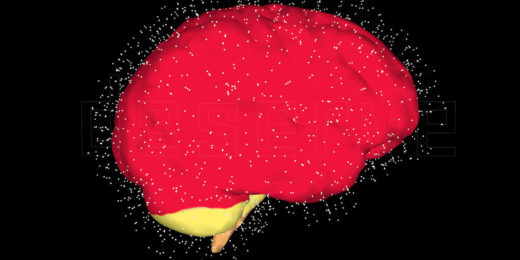Every month, I get an allergen desensitization shot.
The shots are fairly painful, but I receive them willingly in a safe and comfortable setting, and I feel positive about their impact on my life: they allow me to pet my cats without breaking out in hives. I usually forget about the discomfort after leaving the clinic, and I'm often surprised when I move my arm and feel a twinge at the injection site.
Would I feel the same way if a random person on the street ran up to me and stabbed my arm with a needle of the same size?
I thought about this question when I interviewed Stanford pain medicine specialists about the psychology of pain.
Anuj Aggarwal, MD, an anesthesiologist and pain physician, told me that a person's feelings about the source of their pain affects their perception of the experience.
For example, he said, though a person is likely to feel sore and uncomfortable after running a marathon, they will probably consider the experience less unpleasant than a person who experiences pain following an accident or a long stretch of inactivity. Because running a marathon was a choice, and considered a healthful accomplishment, Aggarwal said, the runner is less distressed by that pain than if it had been caused by something outside of their control and "bad for them," such as a car accident or an injury from lifting too-heavy weights at the gym.
When it comes to chronic pain, a patient's feelings toward the sensation may affect how intensely they experience it, he told me. If they describe the pain as "punishing," "cruel" or "malicious," it can give insight to the patient's relationship with it -- for example, they may believe they deserve the pain, Aggarwal said.
People who believe that their lives are out of their hands are more likely to experience chronic affective pain following acute pain, Aggarwal told me. On the other hand, people who feel generally in control and in charge of their lives -- known as having a strong internal locus of control -- are less likely to experience chronic pain, and may experience acute pain less intensely.
Anesthesiologist/pain physician and neuroscientist Vivianne Tawfik, MD, PhD, has been able to observe such relationships through clinical use of Stanford's Collaborative Health Outcomes Information Registry. Developed by Pain Division Chief, Sean Mackey, MD, PhD, the registry regularly surveys patients to provide a holistic view of their experience with pain for physicians and researchers. Several publications using the registry show that people experiencing chronic pain also tend to rank high on depression, anxiety, sleep interference and anhedonia -- that is, inability to feel pleasure.
I asked her if there's a "chicken and egg" effect here: are people with depression and anxiety predisposed to experience chronic pain? Or is living with chronic pain responsible for their sleeplessness and inability to feel pleasure?
To some extent, Tawfik told me, the answer is probably both.
Regardless, understanding a patient's psychological state can be helpful for clinicians making treatment decisions, Tawfik said. For a patient who reports trouble sleeping, for example, a clinician might select a pain medication that has drowsiness as a side effect.
Awareness of a patient's fears and anxieties can also help clinicians select the right treatment or combination of therapies for their pain. Patients who are concerned about re-injuring themselves might feel safer doing physical therapy in a clinical setting rather than at home alone, she explained.
Tawfik said she was optimistic that information compiled from the surveys would continue to unearth connections between psychological factors and chronic pain -- and help clinicians get even better at personalizing potential treatments.
In the meantime, she said, the best general approach for treating chronic pain includes a combination of medications, interventions, physical or occupational therapy and psychological approaches, such as cognitive behavioral therapy.
She also recommended that patients keep an open mind to treatment options, engage actively in their care and learn self-management strategies, such as techniques to improve sleep or ease stress and tension.
This is the second installment in a two-part series on the physiology and psychology of pain. The first part is available here.
Photo by Yuris Alhumaydy






